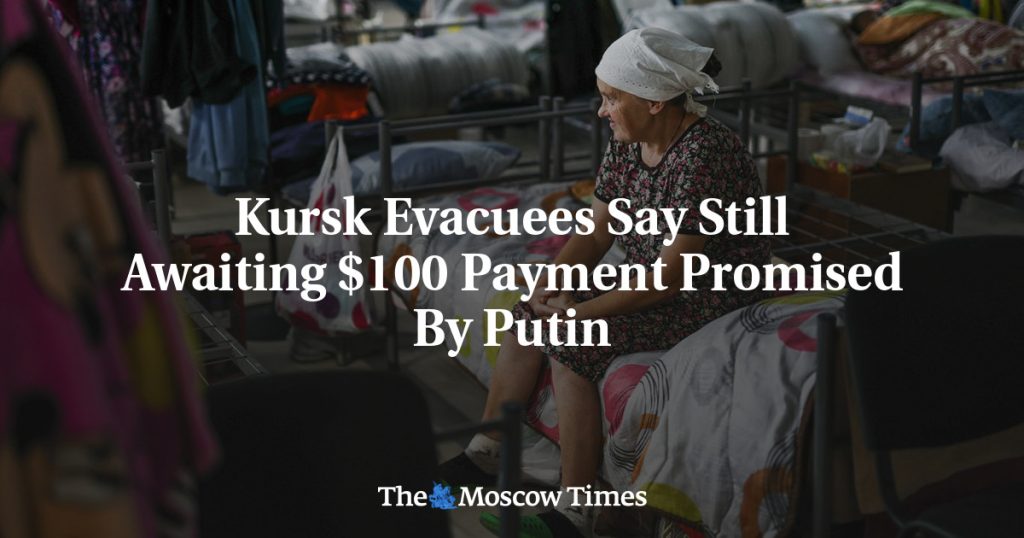Many residents of southwestern Russia’s Kursk region have yet to receive the promised one-time payment of 10,000 rubles ($110) from President Vladimir Putin, following Ukraine’s surprise incursion into the region. The residents, who were forced to evacuate from embattled parts of the region, are facing rejections when filing for the payouts on the government e-portal Gosuslugi. According to Yevgeniya Nazarova, who heads the Kursk region volunteer humanitarian group “Social Navigator,” there is a lack of consultation, information, and interagency interaction available to the evacuees during this process.
The lack of support and communication for evacuees seeking the payouts has been an ongoing issue since the Ukrainian incursion began. Despite Putin’s promise of financial assistance, many residents are still struggling to receive the compensation they were assured. The exact number of evacuees in the Kursk region who have not yet received the payments has not been specified. However, it is estimated that around 130,000 people were forced to evacuate, with 20,000 currently residing in areas under Ukrainian control and almost 700 individuals still missing in the region.
While the Russian government claims that 87,600 Kursk region residents have received a total of 1.3 billion rubles ($14.3 million) in various compensation payments, this amounts to less than 15,000 rubles per person. The discrepancy between the number of evacuees and the amount of financial aid being distributed raises concerns about the effectiveness and efficiency of the compensation process. With many individuals still awaiting the promised payments, there are calls for increased transparency and accountability in the distribution of funds to ensure that those affected by the conflict receive the support they were promised.
The delays and challenges faced by Kursk region evacuees in accessing the financial assistance promised by Putin highlight the difficulties and shortcomings in providing relief to those affected by the ongoing conflict with Ukraine. The lack of consultation and support for evacuees during the payout process has exacerbated the already stressful situation for residents who were forced to flee their homes. As the conflict continues, it is crucial for the Russian government to address these issues promptly and ensure that all evacuees receive the financial assistance they are entitled to.
The situation in the Kursk region serves as a reminder of the complexities and challenges associated with providing assistance to those affected by conflict and displacement. Effective coordination between government agencies, transparent communication, and timely distribution of funds are essential to support evacuees during times of crisis. As the humanitarian crisis in the region continues to unfold, it is imperative that all efforts are made to prioritize the well-being and welfare of those impacted by the conflict and to ensure that they receive the support they need to rebuild their lives.
In conclusion, the delayed payments and challenges faced by evacuees in the Kursk region underscore the importance of reliable and efficient support systems for those affected by conflict and displacement. The Russian government must work towards improving the distribution process of financial aid to ensure that all evacuees receive the assistance they were promised. By addressing the existing gaps in communication and coordination, authorities can better meet the needs of those impacted by the conflict in the Kursk region and provide them with the necessary support to navigate these challenging times.














